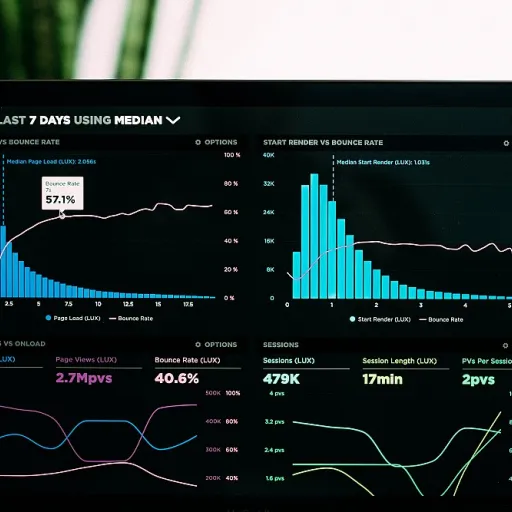
Defining a value hypothesis in AI-powered SEO
Clarifying the Value Hypothesis in AI SEO
In the context of AI-driven search engine optimisation, a value hypothesis is a clear, testable statement about what product or service value will resonate with a target audience. It predicts how a product, feature, or content will deliver measurable benefits to users, ultimately driving growth and improving conversion rates. This concept is rooted in the lean startup methodology, where businesses use data and customer feedback to validate their assumptions before investing significant time or resources.
Unlike a growth hypothesis, which focuses on how a business will acquire new users or customers, a value hypothesis centers on whether the product or service actually delivers meaningful value to those users. In SEO, this means understanding what content, features, or experiences will satisfy user intent and improve search visibility over the long term.
Why Value Hypotheses Matter in AI-Powered SEO
With artificial intelligence, businesses can analyse large volumes of market and user data to form more accurate hypotheses about what their target audience values. AI tools help identify patterns in user behavior, search trends, and feedback, making it possible to develop a hypothesis framework that is both data-driven and customer-centric. This approach reduces guesswork and increases the likelihood of creating content or features that align with user needs and search engine requirements.
- Product development: AI enables rapid hypothesis tests, allowing teams to iterate on product value and user experience based on real-time data.
- Customer feedback: Automated analysis of reviews, comments, and user interactions helps refine the value proposition and adapt to changing market demands.
- SEO strategy: AI-powered insights support the creation of minimum viable content that meets both user expectations and search engine algorithms.
For a practical example of how AI is used to test and validate value hypotheses in SEO, you can explore how AI enhances SEO strategies for better visibility and conversions.
Understanding the concept of a value hypothesis is essential for anyone involved in product management, product service, or business growth through SEO. It lays the foundation for hypothesis-driven product management and ensures that every change is backed by verifiable value for both users and the business.
How artificial intelligence shapes value hypotheses
AI’s Influence on Hypothesis Building in SEO
Artificial intelligence is transforming how businesses shape their value hypothesis for SEO. Traditionally, forming a hypothesis about what will deliver value to customers and users relied on intuition, market research, and manual analysis. Today, AI brings a data-driven approach that accelerates and strengthens the entire process.
How AI Refines the Value Proposition
AI-powered tools analyze vast amounts of data from search engines, user behavior, and customer feedback. This enables businesses to identify what their target audience is searching for, how they interact with content, and which product or service features resonate most. By leveraging machine learning algorithms, companies can quickly test different value hypotheses and adapt their SEO strategies based on real-time feedback and measurable outcomes.
- Data-driven insights: AI uncovers patterns in user intent, keyword trends, and conversion rates, helping refine the value proposition for each product or service.
- Faster hypothesis tests: Automated analysis shortens the time needed to validate or reject a hypothesis, supporting agile product development and growth hypothesis cycles.
- Personalization: AI enables segmentation of the target audience, allowing for tailored content and offers that increase product value and user satisfaction.
- Continuous improvement: Ongoing user feedback and market data feed into the hypothesis framework, supporting long-term business growth and minimum viable product iterations.
AI in Action: Smarter SEO Strategies
Modern SEO strategies powered by AI go beyond keyword optimization. They focus on delivering verifiable value to users and customers by aligning content, product features, and user experience with real market needs. For a deeper look at how AI is shaping these smarter SEO strategies, you can read more at how artificial intelligence is shaping smarter SEO strategies.
By integrating AI into the hypothesis framework, startups and established businesses alike can better understand their customers, test ideas faster, and adapt to changes in the market. This approach supports both short-term wins and long-term growth in SEO performance and product management.
Key components of a strong value hypothesis for SEO
What Makes a Value Hypothesis Actionable in AI SEO?
For any AI-driven SEO strategy, a value hypothesis is only as strong as its ability to connect your product or service with real customer needs. This means focusing on what your target audience values most and how your product delivers on those expectations. In the context of SEO, the hypothesis should be testable, measurable, and directly tied to business growth.
- Clear value proposition: Define what unique benefit your product or service offers to users. This is the foundation for your hypothesis and helps clarify why customers will choose your solution over competitors.
- Target audience alignment: Identify who your value customers are and what problems they need solved. Understanding your target market ensures your hypothesis is relevant and actionable.
- Data-driven assumptions: Use available data to inform your hypothesis. AI can analyze user feedback, market trends, and conversion rates to help you pinpoint where your product value aligns with user needs.
- Minimum viable product (MVP) focus: Start with a lean startup approach by testing the smallest version of your idea that delivers verifiable value. This lets you gather customer feedback quickly and iterate based on real-world results.
- Hypothesis framework: Structure your value hypothesis so it can be tested and validated. For example: "If we improve our product’s search experience, then our target users will spend more time on site and conversion rates will increase."
- Feedback loops: Build in mechanisms for collecting user feedback and market data. This is essential for refining your hypothesis and ensuring your product development stays on track.
It’s also important to distinguish between a value hypothesis and a growth hypothesis. While the value hypothesis focuses on whether your product delivers enough value for customers to use it, the growth hypothesis tests if those users will drive sustainable business growth over time. Both are critical for long-term success in AI SEO strategies.
For a practical example of how value hypotheses connect with real-world SEO, you can explore how marketing channels are chosen based on product value and customer feedback.
| Component | Purpose | How AI Helps |
|---|---|---|
| Value Proposition | Clarifies what users gain | Analyzes user data to refine messaging |
| Target Audience | Defines who benefits | Segments users for personalized SEO |
| Customer Feedback | Validates assumptions | Processes large-scale feedback for insights |
| Hypothesis Tests | Measures impact | Automates A/B testing and analysis |
| Conversion Rates | Tracks business growth | Monitors and predicts trends over time |
By focusing on these components, businesses and startups can build a robust hypothesis framework that supports both product management and long-term SEO growth. The right combination of data, user feedback, and hypothesis testing ensures your product or service delivers real, verifiable value to your customers.
Testing and validating value hypotheses with AI
Turning Hypotheses into Actionable Insights with AI
Testing and validating a value hypothesis in AI-driven SEO is essential for understanding if your product or service delivers real value to your target audience. Artificial intelligence accelerates this process by analyzing large volumes of data, identifying patterns, and providing actionable feedback. This helps businesses quickly determine whether their value proposition resonates with users and supports long-term growth.
- Data-driven hypothesis tests: AI tools can run experiments on landing pages, content, and keywords to measure user engagement and conversion rates. This allows for rapid iteration and refinement of your hypothesis value.
- Customer and user feedback analysis: Machine learning models process customer feedback from multiple channels, revealing what users appreciate about your product and where the value proposition may fall short.
- Market and competitor insights: AI can monitor market trends and competitor strategies, helping you adjust your hypothesis framework to better fit the evolving needs of your target audience.
- Minimum viable product (MVP) validation: By tracking user interactions with MVPs, AI highlights which features drive the most value for customers, supporting data-backed product development decisions.
Metrics That Matter for Hypothesis Validation
To ensure your value hypothesis is verifiable, focus on metrics that reflect real user behavior and business impact. These include:
- Conversion rates: Are users taking the desired actions on your site?
- User retention: Do customers return over time, indicating sustained product value?
- Customer feedback quality: What do users say about your product or service, and does it align with your value proposition?
- Growth metrics: Is your hypothesis supporting measurable business growth and market traction?
By leveraging AI for continuous hypothesis tests and feedback loops, startups and established businesses alike can refine their value proposition, improve product management, and drive sustainable growth in a competitive market.
Common challenges in forming value hypotheses for AI-driven SEO
Obstacles in Defining and Validating Hypotheses
When applying artificial intelligence to search engine optimisation, forming a value hypothesis is not always straightforward. Several challenges can slow down or complicate the process of identifying what will truly deliver value to your target audience and business growth. Understanding these obstacles is key to refining your product or service and achieving measurable results.
- Data Quality and Relevance: AI models rely heavily on data, but if the data is outdated, biased, or irrelevant to your market, your hypothesis framework may be built on shaky ground. This can lead to inaccurate assumptions about user needs, product value, or conversion rates.
- Misalignment with Customer Needs: Sometimes, the initial idea of value does not match what customers actually want. Without regular customer feedback and user feedback, your value proposition may miss the mark, especially in dynamic markets.
- Overcomplicating the Hypothesis: In the rush to leverage advanced AI tools, teams may create complex hypotheses that are hard to test or validate. Simple, minimum viable hypotheses are easier to measure and iterate on, especially for startups and lean product development cycles.
- Insufficient Hypothesis Testing: Relying on a single test or not running enough hypothesis tests can result in misleading conclusions. Continuous testing and validation are essential to verify the long-term impact of your SEO strategies.
- Difficulty Measuring Verifiable Value: It can be challenging to define clear metrics that show whether your product or service is delivering real value to users. Without measurable outcomes, it is hard to prove the effectiveness of your value hypothesis or growth hypothesis.
- Time Constraints: AI-driven SEO projects often face pressure to deliver quick results. However, building a strong value proposition and gathering actionable market feedback takes time, especially when targeting new audiences or launching a new product.
Addressing these challenges requires a disciplined approach to product management and a willingness to adapt your hypothesis as new data and customer insights emerge. By focusing on hypothesis value and integrating continuous feedback, businesses can improve their product development process and achieve sustainable growth in competitive markets.
Best practices for leveraging value hypotheses in AI SEO strategies
Building a Repeatable Process for AI-Driven SEO Value Hypotheses
To make the most of value hypotheses in AI-powered SEO, it is essential to establish a repeatable process that integrates data, user feedback, and market trends. This approach helps ensure that your product or service consistently delivers verifiable value to your target audience. Here are some best practices to consider:
- Start with a clear hypothesis framework: Define what you believe will drive growth and value for your users. Use a structured approach to outline your value proposition and growth hypothesis, focusing on the specific needs of your customers and the market.
- Leverage real-time data: AI tools can analyze large volumes of user data, search trends, and conversion rates. Use these insights to refine your hypothesis and adapt your product development or content strategy to better match what your target audience values.
- Test early and often: Implement minimum viable changes to your product or content, then measure the impact through hypothesis tests. This lean startup mindset allows you to quickly validate ideas and avoid wasting time on unproven concepts.
- Collect and act on customer feedback: Regularly gather user feedback to understand how your product value is perceived. This information is crucial for refining your value hypothesis and improving your product management decisions.
- Monitor long-term impact: Track the long-term effects of your SEO strategies on business growth, user engagement, and customer satisfaction. Continuous monitoring helps you adjust your approach as market conditions and customer needs evolve.
Aligning Product and SEO Teams Around Value
Effective collaboration between product, marketing, and SEO teams is key to maximizing the impact of your value hypotheses. By sharing data, insights, and customer feedback, teams can align on what drives value for users and how to communicate that value through SEO efforts. This alignment supports better product service, higher conversion rates, and sustained business growth.
Iterating Based on Hypothesis Outcomes
Not every hypothesis will deliver the expected results. Use each test as an opportunity to learn more about your users and the market. Document what worked, what did not, and why. This iterative approach strengthens your hypothesis framework and supports continuous improvement in both product development and SEO performance.













